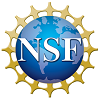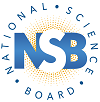References
3M. 2020. 2020 Survey Summary. Available at https://www.3m.com/3M/en_US/state-of-science-index-survey/2020-summary/. Accessed 11 November 2021.
Allum N, Sturgis P, Tabourazi D, Brunton-Smith I. 2008. Science Knowledge and Attitudes across Cultures: A Meta-Analysis. Public Understanding of Science 17(1):35–54.
Bauer MW. 2009. The Evolution of Public Understanding of Science—Discourse and Comparative Evidence. Science, Technology & Society 14(2): 221–40.
Besley JC. 2018. The National Science Foundation’s Science and Technology Survey and Support for Science Funding, 2006–2014. Public Understanding of Science 27(1):94–109.
Bonney R. 2021. Expanding the Impact of Citizen Science. BioScience 71(5):448–51.
Breza E, Stanford FC, Alsan M, Alsan B, Banerjee A, Chandrasekhar AG, Eichmeyer S, Glushko T, Goldsmith-Pinkham P, Holland K, Hoppe E, Karnani M, Liegl S, Loisel T, Ogbu-Nwobodo L, Olken BA, Torres C, Vautrey P, Warner ET, Wootton S, Duflo E. 2021. Effects of a Large-Scale Social Media Advertising Campaign on Holiday Travel and COVID-19 Infections: A Cluster Randomized Controlled Trial. Nature Medicine 27:1622–28.
Brossard D, Lewenstein B. 2010. A Critical Appraisal of Models of Public Understanding of Science. In Kahlor LA, Stout P, editors, Understanding and Communicating Science: New Agendas in Communication, pp. 11–39. New York: Routledge.
Brossard D, Lewenstein B, Bonney R. 2005. Scientific Knowledge and Attitude Change: The Impact of a Citizen Science Project. International Journal of Science Education 27(9):1099–1121.
Brunson EK, Buttenheim A, Omer S, Quinn SC. 2021. Strategies for Building Confidence in the COVID-19 Vaccines. Washington, DC: National Academies Press. Available at https://www.nap.edu/read/26068/chapter/1. Accessed 10 November 2021.
Capobianco BM, Diefes-Dux HA, Mena I, Weller J. 2011. What Is an Engineer? Implications of Elementary School Student Conceptions for Engineering Education. Journal of Engineering Education 100(2):304–28.
Davern M, Bautista R, Freese J, Morgan SL, Smith TW. 2021. General Social Survey 2021 Cross-Section. Chicago: NORC at the University of Chicago.
Druckman JN. 2015. Communicating Policy-Relevant Science. PS: Political Science & Politics 48(S1):58–69.
Durant JR, Evans GA, Thomas GP. 1989. The Public Understanding of Science. Nature 340(6):11–14.
Fast E, Horvitz E. 2017. Long-Term Trends in the Public Perception of Artificial Intelligence. Proceedings of the AAAI Conference on Artificial Intelligence 31(1):963–69.
Fearnow B. 2021. One-Third of Unvaccinated Americans Don’t Trust Scientists Who Made Vaccines, Survey Finds. Newsweek March 14. Available at https://www.newsweek.com/one-third-unvaccinated-americans-dont-trust-scientists-who-made-vaccines-survey-finds-1576031. Accessed 20 July 2021.
Federal Community of Practice for Crowdsourcing and Citizen Science (FedCCS). 2019. Available at https://www.citizenscience.gov/assets/FedCCS.pdf. Accessed 20 July 2021.
Fralick B, Kearn J, Thompson S, Lyons J. 2009. How Middle Schoolers Draw Engineers and Scientists. Journal of Science Education and Technology 18(1):60–73.
Funk C. 2021. Key Findings: How Americans’ Attitudes about Climate Change Differ by Generation, Party and Other Factors. Washington, DC: Pew Research Center. Available at https://www.pewresearch.org/fact-tank/2021/05/26/key-findings-how-americans-attitudes-about-climate-change-differ-by-generation-party-and-other-factors/. Accessed 22 November 2021.
Funk C, Gottfried J, Mitchell A. 2017. Science News and Information Today. Washington, DC: Pew Research Center. Available at https://www.journalism.org/wp-content/uploads/sites/8/2017/09/PJ_2017.09.20_Science-and-News_FINAL.pdf. Accessed 20 July 2021.
Funk C, Hefferon M, Kennedy B, Johnson C. 2019. Trust and Mistrust in Americans’ Views of Scientific Experts. Washington, DC: Pew Research Center. Available at https://www.pewresearch.org/science/2019/08/02/trust-and-mistrust-in-americans-views-of-scientific-experts/. Accessed 20 July 2021.
Funk C, Kennedy B, Johnson C. 2020. Trust in Medical Scientists Has Grown in U.S., but Mainly among Democrats. Washington, DC: Pew Research Center. Available at https://www.pewresearch.org/science/2020/05/21/trust-in-medical-scientists-has-grown-in-u-s-but-mainly-among-democrats/. Accessed 20 July 2021.
Funk C, Parker K. 2018. Most Americans Evaluate STEM Education as Middling Compared with Other Developed Nations. Washington, DC: Pew Research Center. Available at https://www.pewresearch.org/social-trends/2018/01/09/5-most-americans-evaluate-stem-education-as-middling-compared-with-other-developed-nations/. Accessed 20 July 2021.
Funk C, Tyson A. 2020. Intent to Get a COVID-19 Vaccine Rises to 60% as Confidence in Research and Development Process Increases. Washington, DC: Pew Research Center. Available at https://www.pewresearch.org/science/2020/12/03/intent-to-get-a-covid-19-vaccine-rises-to-60-as-confidence-in-research-and-development-process-increases/. Accessed 20 July 2021.
Gallup. 2019a. In Depth: Topics A to Z—Environment. Available at https://news.gallup.com/poll/1615/environment.aspx. Accessed 20 July 2021.
Gallup. 2019b. Wellcome Global Monitor—First Wave Findings. Available at https://wellcome.org/reports/wellcome-global-monitor/2018. Accessed 11 November 2021.
Gallup. 2021. Wellcome Global Monitor—How Covid-19 Affected People’s Lives and Their Views about Science. Available at https://cms.wellcome.org/sites/default/files/2021-11/Wellcome-Global-Monitor-Covid.pdf. Accessed 2 December 2021.
Hendriks F, Kienhues D, Bromme R. 2020. Replication Crisis = Trust Crisis? The Effect of Successful vs. Failed Replications on Laypeople’s Trust in Researchers and Research. Public Understanding of Science 29(3):270–88.
Hilgartner S. 1990. The Dominant View of Popularization: Conceptual Problems, Political Uses. Social Studies of Science 20:519–39.
Hmielowski JD, Feldman L, Myers TA, Leiserowitz A, Maibach E. 2014. An Attack on Science? Media Use, Trust in Scientists, and Perceptions of Global Warming. Public Understanding of Science 23(7):866–83.
Jamieson KH, Hardy BW. 2014. Leveraging Scientific Credibility about Arctic Sea Ice Trends in a Polarized Political Environment. Proceedings of the National Academy of Sciences 111(Suppl. 4):13598–605.
Johnson C, Tyson A. 2020. People Globally Offer Mixed Views of the Impact of Artificial Intelligence, Job Automation on Society. Washington, DC: Pew Research Center. Available at https://www.pewresearch.org/fact-tank/2020/12/15/people-globally-offer-mixed-views-of-the-impact-of-artificial-intelligence-job-automation-on-society/. Accessed 20 July 2021.
Kalil A, Ryan R. 2020. Parenting Practices and Socioeconomic Gaps in Childhood Outcomes. Future of Children 30(1):29–54.
Kenealy T, Arroll B. 2013. Antibiotics for the Common Cold and Acute Purulent Rhinitis. Cochrane Database Systematic Reviews 2013(6):CD000247.
Krause NM, Brossard D, Scheufele DA, Xenos MA, Franke K. 2019. Trends—Americans’ Trust in Science and Scientists. Public Opinion Quarterly 83(4):817–36.
Kreps SE, Kriner DL. 2020. Model Uncertainty, Political Contestation, and Public Trust in Science: Evidence from the COVID-19 Pandemic. Science Advances 6(43):eabd4563.
Leiserowitz A, Maibach E, Rosenthal S, Kotcher J, Bergquist P, Ballew M, Goldberg M, Gustafson A. 2019. Climate Change in the American Mind. New Haven, CT: Yale Program on Climate Change Communication, George Mason University Center for Climate Change Communication. Available at https://climatecommunication.yale.edu/wp-content/uploads/2019/12/Climate_Change_American_Mind_November_2019b.pdf. Accessed 20 July 2021.
Leshner AI. 2003. Public Engagement with Science. Science 299(5609):977.
Lewenstein BV. 1992. The Meaning of “Public Understanding of Science” in the United States after World War II. Public Understanding of Science 1(1):45–68.
Lupia A. 2013. Communicating Science in Politicized Environments. Proceedings of the National Academy of Sciences 110(Suppl. 3):14048–54.
Manning C. 2020. Artificial Intelligence Definitions. Stanford University Human-Centered Artificial Intelligence. Available at https://hai.stanford.edu/sites/default/files/2020-09/AI-Definitions-HAI.pdf. Accessed 20 July 2021.
McCormack LA, Squiers L, Frasier AM, Bevc C, Lynch M, Bann CM, MacDonald PDM. 2021. Gaps in Knowledge about COVID-19 among U.S. Residents Early in the Outbreak. Public Health Reports 136(1):107–16.
Miller JD. 2004. Public Understanding of, and Attitudes toward, Scientific Research: What We Know and What We Need to Know. Public Understanding of Science 13(3):273–94.
Mitchell A, Jurkowitz M, Oliphant JB, Shearer E. 2020. Americans Who Mainly Get Their News on Social Media Are Less Engaged, Less Knowledgeable. Washington, DC: Pew Research Center. Available at https://www.journalism.org/2020/07/30/americans-who-mainly-get-their-news-on-social-media-are-less-engaged-less-knowledgeable/. Accessed 20 July 2021.
Muñoz A, Moreno C, Luján JL. 2012. Who Is Willing to Pay for Science? On the Relationship between Public Perception of Science and the Attitude to Public Funding of Science. Public Understanding of Science 21(2):242–53.
Nagler RH, Vogel RI, Gollust SE, Rothman AJ, Fowler EF, Yzer MC. 2020. Public Perceptions of Conflicting Information Surrounding COVID-19: Results from a Nationally Representative Survey of U.S. Adults. PLOS ONE 15(10):e0240776.
National Academy of Engineering (NAE). 2008. Changing the Conversation: Messages for Improving Public Understanding of Engineering. Washington, DC: National Academies Press. Available at https://doi.org/10.17226/12187. Accessed 20 July 2021.
National Center for Science and Engineering Statistics (NCSES). 1985–2001. Survey of Public Attitudes Toward and Understanding of Science and Technology. Alexandria VA: National Science Foundation.
National Research Council (NRC). 2009. Learning Science in Informal Environments: People, Places, and Pursuits. Committee on Learning Science in Informal Environments. Washington, DC: National Academies Press. Available at https://www.nap.edu/catalog/12190/learning-science-in-informal-environments-people-places-and-pursuits. Accessed 20 July 2021.
National Science Board (NSB), National Science Foundation. 2020. Science and Technology: Public Attitudes, Knowledge, and Interest. Science and Engineering Indicators 2020 (Indicators 2020). NSB-2020-7. Alexandria, VA. Available at https://ncses.nsf.gov/pubs/nsb20207/.
Newman TP, Nisbet EC, Nisbet MC. 2018. Climate Change, Cultural Cognition, and Media Effects: Worldviews Drive News Selectivity, Biased Processing, and Polarized Attitudes. Public Understanding of Science 27(8):985–1002.
Ophir Y, Jamieson KH. 2021. The Effects of Media Narratives about Failures and Discoveries in Science on Beliefs about and Support for Science. Public Understanding of Science 30(8):1008–23.
Pandya R, Dibner KA, editors. 2018. Learning through Citizen Science: Enhancing Opportunities by Design. Washington, DC: National Academies Press. Available at https://doi.org/10.17226/25183. Accessed 23 November 2021.
Pew Research Center. 2013. Public Esteem for Military Still High. Washington, DC: Pew Research Center. Available at https://www.pewforum.org/2013/07/11/public-esteem-for-military-still-high/. Accessed 3 November 2021.
Pew Research Center. 2016. Public Views on Climate Change and Climate Scientists. Washington, DC: Pew Research Center. Available at https://www.pewresearch.org/science/2016/10/04/public-views-on-climate-change-and-climate-scientists/. Accessed 20 July 2021.
Pew Research Center. 2020a. American Trends Panel: Wave 67. Conducted 29 April–5 May 2020. Available at https://www.pewresearch.org/science/dataset/american-trends-panel-wave-67/.
Pew Research Center. 2020b. American Trends Panel: Wave 79. Conducted 18–29 November 2020. Available at https://www.pewresearch.org/science/dataset/american-trends-panel-wave-79/.
Piccone A. 2020. Why We Don’t Trust Science. Wyoming Public Media July 17. Available at https://www.wyomingpublicmedia.org/post/why-we-dont-trust-science. Accessed 20 July 2021.
Reeping D, Reid K. 2014. Student Perceptions of Engineering after a K–12 Outreach—A “STEM Academy.” Proceedings of the 2014 American Society for Engineering Education North Central Section Conference.
Royal Society, National Academy of Sciences (NAS). 2020. Climate Change: Evidence & Causes (Update 2020). Available at https://royalsociety.org/-/media/Royal_Society_Content/policy/projects/climate-evidence-causes/climate-change-evidence-causes.pdf. Accessed 20 July 2021.
Sanders T, Kaplan A, Koch R, Schwartz N, Hancock PA. 2019. The Relationship between Trust and Use Choice in Human-Robot Interaction. Human Factors 61(4):614–26.
Sanders T, MacArthur K, Volante W, Hancock G, MacGillivray T, Shugars W, Hancock PA. 2017. Trust and Prior Experience in Human-Robot Interaction. Proceedings of the Human Factors and Ergonomics Society Annual Meeting 61(1):1809–13.
Schafer MS. 2017. How Changing Media Structures Are Affecting Science News Coverage. In Jamieson KH, Scheufele D, Kahan D, editors, The Oxford Handbook on the Science of Science Communication, pp. 51–59. New York: Oxford University Press.
Smith TW, Davern M, Freese J, Morgan S. 2012–18. General Social Surveys. National Science Foundation and NORC at the University of Chicago. Available at https://gssdataexplorer.norc.org. Accessed 1 April 2021.
Southwell B, Hedberg A, Krebs C, Zevitas S, editors. 2019. Building and Maintaining Trust in Science: Paths Forward for Innovations by Nonprofits and Funding Organizations. RTI Press Publication No. CP-0010-1909. Research Triangle Park, NC: RTI Press.
Southwell B, Kelly BJ, Bann CM, Squiers LB, Ray SE, McCormack LA. 2020. Mental Models of Infectious Diseases and Public Understanding of COVID-19 Prevention. Health Communication 35(14):1707–10.
Southwell B, Torres A. 2006. Connecting Interpersonal and Mass Communication: Science News Exposure, Perceived Ability to Understand Science, and Conversation. Communication Monographs 73(3):334–50.
Soykan CU, Sauer J, Schuetz JG, LeBaron GS, Dale K, Langham GM. 2016. Population Trends for North American Winter Birds Based on Hierarchical Models. Ecosphere 7(5):e01351.
Tenhundfeld NL, de Visser EJ, Haring KS, Ries AJ, Finomore VS, Tossell CC. 2019. Calibrating Trust in Automation through Familiarity with the Autoparking Feature of a Tesla Model X. Journal of Cognitive Engineering and Decision Making 13(4):279–94.
Tenhundfeld NL, de Visser EJ, Ries AJ, Finomore VS, Tossell CC. 2020. Trust and Distrust of Automated Parking in a Tesla Model X. Human Factors 62(2):194–210.
U.S. Census Bureau. 2021a. Household Pulse Survey Data Tables, Phase 3, Week 23. Conducted 20 January–1 February 2021. Available at https://www.census.gov/data/tables/2021/demo/hhp/hhp23.html. Accessed 10 October 2021.
U.S. Census Bureau. 2021b. Household Pulse Survey Data Tables, Phase 3.2, Week 37. Conducted 1–12 September 2021. Available at https://www.census.gov/data/tables/2021/demo/hhp/hhp37.html. Accessed 10 October 2021.
VanMeter-Adams A, Frankenfeld CL, Bases J, Espina V, Liotta LA. 2014. Students Who Demonstrate Strong Talent and Interest in STEM Are Initially Attracted to STEM through Extracurricular Experiences. CBE—Life Sciences Education 13(4):687–97.
Vincent-Ruz P, Schunn CD. 2018. The Nature of Science Identity and Its Role as the Driver of Student Choices. International Journal of STEM Education 5(1):48. Available at https://doi.org/10.1186/s40594-018-0140-5. Accessed 20 July 2021.
Wonneberger A, Meijers MHC, Schuck ART. 2020. Shifting Public Engagement: How Media Coverage of Climate Change Conferences Affects Climate Change Audience Segments. Public Understanding of Science 29(2):176–93.
World Health Organization (WHO). 2020. Naming the Coronavirus Disease (COVID-19) and the Virus That Causes It. Available at https://www.who.int/emergencies/diseases/novel-coronavirus-2019/technical-guidance/naming-the-coronavirus-disease-(covid-2019)-and-the-virus-that-causes-it. Accessed 20 July 2021.
Zhang B, Dafoe A. 2019. Artificial Intelligence: American Attitudes and Trends. Oxford, UK: Center for the Governance of AI, Future of Humanity Institute, University of Oxford.
 An official website of the United States government
An official website of the United States government
